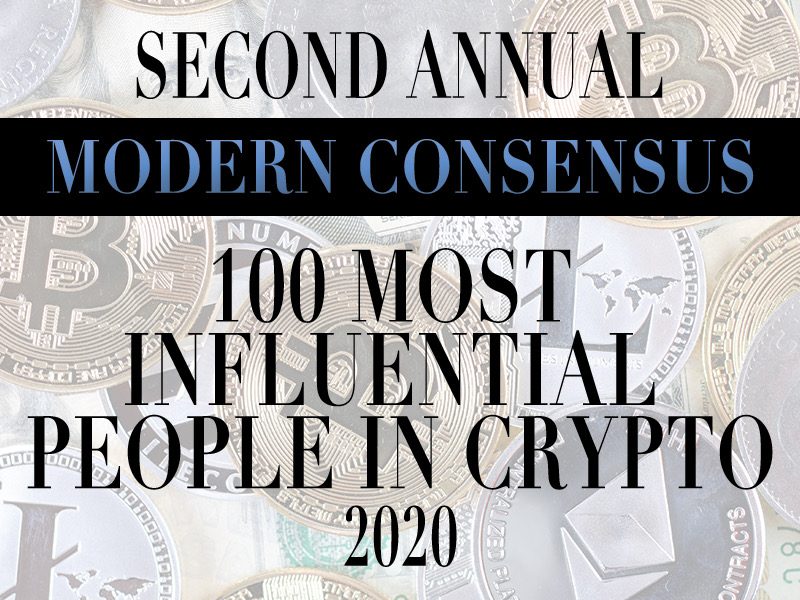 Facebook, Google and Amazon not only make up three of the five biggest tech giants on this planet, and they not only all appear together on Forbes’ recently released second Blockchain 50 list , but they are also often found at the root of a number of privacy and data scandals.Data, and the protection of individual data, has become a very hot topic recently.This is in reaction to the uncovering of the way in which data is mined and misappropriated by some of these major companies that attract billions of users a day to their sites.
Facebook, Google and Amazon not only make up three of the five biggest tech giants on this planet, and they not only all appear together on Forbes’ recently released second Blockchain 50 list , but they are also often found at the root of a number of privacy and data scandals.Data, and the protection of individual data, has become a very hot topic recently.This is in reaction to the uncovering of the way in which data is mined and misappropriated by some of these major companies that attract billions of users a day to their sites.
Data has become the new oil, and its value is ever skyrocketing.Its value is also only just started to be realised by those who produce it – the internet-using individuals.However, the companies that have been mining it for years have been well aware of the power they wield with it.
The evolution of data as a viable commodity is all part of the advancement of technology.And thus, so has the protection and valuing of data also evolved in recent times.We are now at a stage where people are valuing their data more than they are the services provided by the likes of Google, Facebook, and even Amazon, and this is causing these companies to start pivoting.
In order to stay relevant, and at the top of the curve, these major internet companies have started looking to the future.
In that forward-looking they have identified Blockchain technology as a pivotal cog in the next evolution of the internet – Web 3.0 – but this has also forced them to understand where blockchain technology came from.
Blockchain technology, as it stands today in the enterprise space, may well be far removed from its early days as the technology underlying Bitcoin, but its root purpose is still prevalent.Even Bitcoin has evolved since its inception, but again, the whole notion behind this entire space is decentralization.
Decentralization, especially in terms of the internet, is a fascinating concept, and one that is gaining traction today.It takes away a lot of the power and influence from centralized figures – such as Facebook and Google – and sees the running of internet applications done on a decentralized basis.
The advantage for individuals is evident, especially in an age of data protection, but it seems to be counter-intuitive for internet companies.
However, the fact that these companies are getting vested in decentralized platforms means that they could well be aiding in the demise of data collection and accumulation.
Tim Berners-Lee, an early web enthusiast and the inventor of the World Wide Web, is convinced — having been originally created as a truly decentralized medium — the web should go back to its fundamentals.
“The individual was incredibly empowered.It was all based on there being no central authority that you had to go to to ask permission,” he said, “That feeling of individual control, that empowerment, is something we’ve lost.”
Are Facebook and Google ready to help bring on Web 3.0? Are they happy to bend with a change of individual sentiment that calls for decentralized internet? And could this actually be a way for them to survive amid the massive data scandals that keep racking up?
Google getting called out A good example of where the worlds of decentralized internet and the current model have clashed came towards the end of last year when it emerged that Brave, the privacy browser that has a decentralized aspect to it with its BAT cryptocurrency, uncovered that Google was using a mechanism by which Google appeared to be circumventing its purported GDPR privacy protections.
This was followed on from Ireland’s Data Protection Commission (DPC) announcing a major GDPR probe into “suspected infringement” by Google’s “DoubleClick/Authorized Buyers” advertising business.The probe was triggered by a formal complaint from Dr Johnny Ryan, Chief Policy Officer at Brave.
The latter evidence revealed a surreptitious mechanism that raised additional data protection concerns about Google’s “DoubleClick/Authorized Buyers” advertising system.This system is active on 8.4 million websites.
However, Google claimed to prevent the many companies that use its real-time bidding ad (RTB) system, who receive sensitive data about website visitors, from combining their profiles about those visitors.It also announced that it had stopped sharing pseudonymous identifiers that could help these companies more easily identify an individual, apparently in response to the advent of the GDPR.
But, Brave revealed Google allowed not only one additional party, but many, to match with Google identifiers.The evidence further revealed that Google allowed multiple parties to match their identifiers for the data subject with each other.
This led to Google being fined $57 million for its breach of GDPR with a French regulator saying the world’s biggest search engine lacked transparency and clarity in the way it informs users about its handling of personal data and failed to properly obtain their consent for personalized ads.
It appears as if the internet giant’s drive, even in a world where GDPR has shaken up privacy protection, was still focused on sapping data from its users.
However, as more of these stories emerge, and more fines are dished out, the question remains how much longer Google can get away with it?
More so, the question is also what will Google’s next step be? They have shown their decentralized leanings with an interest in blockchain technology when it was integrating its BigQuery data analytics platform with Chainlink, allowing data from outside sources to be used in applications built directly on the blockchain.The partnership is said to help process futures contracts, settle speculative bets and even make transactions more private.
But does this necessarily mean Google will move towards a decentralized internet in the long term?
Patrick Lee, Co-founder and CEO of Boogle, explains the driving forces towards a decentralized internet.
“With the numerous media reports of data breaches and privacy infringements over the years, it is encouraging to see people becoming more informed and actively searching for better alternatives to better protect their data.Data was, is, and always will be valuable,” he said.
“Governments and enterprises are always on the lookout for more ways to mine data to convert into meaningful information, or to protect these important data from their competitors or rivals.This remains true even with the decentralisation of the internet.”
Worrying times from Facebook Facebook has been in the news recently too because of its data policies and the now infamous Cambridge Analytica data breach.
More so, on the cryptocurrency side of things, the social media giant has faced tremendous uphill on its major project Libra.
Part of that uphill has come directly because of its poor handling of data privacy with the US regulators especially concerned that Facebook would not be able to handle the responsibility of keeping financial data private.
However, it again comes down to how much does Facebook want to give up in a quest towards a more decentralized internet? As a social media platform, it has been heavily accused of data breaches, and its quest to continue staying relevant with Libra seems to indicate it should aim to be more hands-off.
There are arguably already contenders in the decentralized social media space that are looking to show what they can do in competition to Facebook.The likes of Steemit, now on the TRON platform , is one such decentralized option that also incentivises data with financial reward in cryptocurrency.
“While it’s nice to receive praise and comparisons to well established social media platforms, we have a much different objective, and that is to remove the element of centralization or the single point of authority, and give the power, influence and rewards back to the people,” former CEO Ned Scott said of Steemit.
Of course, Brave, the privacy browser, also looks to be trying to overcome the need to sell off data and take advantage of its users by incentivising with BAT tokens and offering tailored adverts in order for people to be rewarded for their data.
Many feel that this is the way in which the next generation of decentralized internet will go – and for Facebook, if it does launch its own Libra cryptocurrency, it would do well to take a leaf out of Brave’s book.
“Brave is allying with our users to give them what they want in ad/tracking-blocked speed and privacy, without the intolerable compromises on user experience that arise from most other browsers’ conflicts of business interest between what users want and what their tracking ad-tech businesses or partnerships require,” Chief of Communications at Brave, Catherine Corre, explained .
“Brave blocks trackers and invasive ads by default, which otherwise slow down page load; this enables Brave to load twice as fast on desktop, and up to eight times faster on mobile.This speed advantage, along with Brave’s built-in privacy and security features, put the browser in a unique place to attract new users who are becoming increasingly aware of privacy scandals.”
“Privacy may have been a niche four years ago when we started, but privacy by default is now a huge draw.Brave puts users first in ownership and control of their data.”
“Additionally, Brave features Brave Ads and Brave Rewards.
Brave Ads reward users for their online attention with Basic Attention Tokens.Brave Rewards enables users to in turn seamlessly support their favourite content providers by donating or tipping tokens.Users who choose Brave get excited about playing a role in fixing the Web and the currently broken ad ecosystem, which mainly now benefits intermediaries at the expense of creators and publishers.”
However, despite Brave’s rapid growth, it is still just a drop in the bucket compared to general internet usage.It seems strange that there is such an uproar about privacy, and there is alternative browser, like Brave, search engines, like Boogle, and social media sites, like Steemit, and yet they remain very niche.
“Change is hard.
People are comfortable and used to existing platforms, finding it difficult to tear themselves away from, especially when their friends and families are all on it.However, we are beginning to see a paradigm shift; a movement towards embracing data privacy.
As we continue to bring more and more of our daily life to the digital world, let’s make it our responsibility today to really care about privacy, enough to break old habits.Let’s update our definition of privacy, recognize the value and power of data, and fight back,” added Lee.
“I believe we’re making slow and steady progress towards a decentralised internet, but we still have a lot of work ahead of us.
Many decentralised applications in the market are having trouble hitting significant user numbers due to a combination of scalability limitation, lack of marketing and user experience flaws for the common consumer.”.
